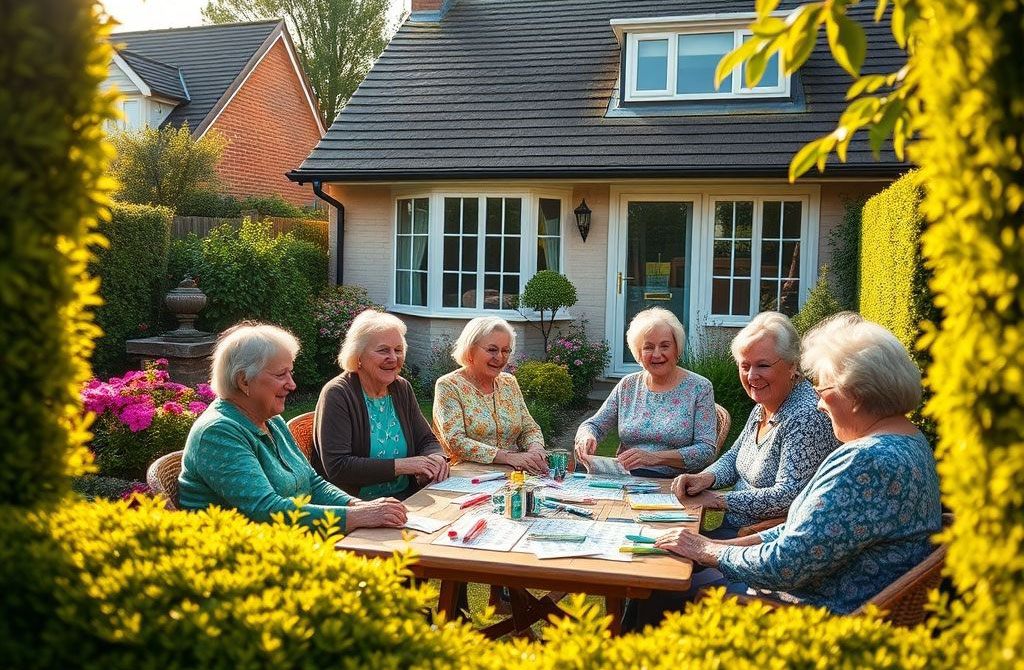The unveiling of some of the best places in the UK to retire can be summarised. These are the areas that shine in care, cost, pace, scenery, and quality of life. If you are thinking about it, they serve as a guide on where you will make your nest. The following aspects are considered important: medical services, such as access to the GP, hospital or clinic, the value of the home and cooking, the location in terms of rail or car travel, the environment, and the friendliness or difficulty to gain access to same-level members of the society. Therefore, some of the popular places in the United Kingdom following the above insights often mentioned in the most recent assessments:
Norfolk – Flat Lands and Friendly Faces
Norfolk is another popular choice. Towns such as Norwich, Wroxham or the coastal areas near Cromer have long been retirement favourites. The place is mostly flat and very walkable or bike-friendly, as you age. There is a lot of history here, clustered around churches, small market towns, local shops and proper traditional pubs. The pace is unhurried. The only problem when I first moved here was actually meeting any locals — not that they don’t want to talk to you; generally, the reverse: They are as interested in your story as you are in theirs — unless you get involved with something like local events or village groups.
Public transportation can very by location. If you will not be driving, it is worth picking a place with good bus service into the town. Housing costs are middle-of-the-road. You’re not going to get London prices, but they’re also not sending you offers with deeply discounted pricing. For others, that balance is just right.
Isle of Wight – A Slower Island Life
The Isle of Wight is a place with an island feeling without being too far from the mainland. Ferries from Portsmouth, Southampton, or Lymington run regularly, it is not extra cheap. Such places like Cowes, Shanklin, or Ryde have been attracting older folks for years. The climate is mild, and this location is one of the warmest places in the UK. There are beaches, open skies, and heaps of paths to small walks, which makes the Isle perfect for those who want to be out of a rush.
By the way, healthcare is okay but limited and you may need to go to the mainland for some treatments. Living on the island, however, means the prices do go up: the delivery takes longer and the choice in shops is not as varied as on the mainland. Nevertheless, peace and sea air are loving it for.
Harrogate – Polished but Pricey
Harrogate in North Yorkshire is regularly voted as the place to live in the UK. It’s clean, there is a sense of security, the streets are maintained and there is a proper central town centre. It is a blend of green space and up-market shops, so it attracts those who want some town razzmatazz but doesn’t need big city stress.
Public transport’s decent. Train lines connect you to Leeds and York. Medical care is fine and there’s loads of stuff around for older people. The main snag? Prices. Harrogate’s on the higher end. Properties are expensive relative to neighbouring northern towns such as Knaresborough or Skipton. If your pension can stretch that far, you love a polished landscape and a spectacular pool, well, take a gander.
Lincoln – Historic and Affordable
Lincoln is one of those cities that no one really mentions, but it’s grand. The city centre has a lot of character – the cathedral sitting on the hill, and the little tea rooms, cobbled streets, and bookshops. It’s not massive, so you won’t feel like you’re living a rat race. Bus services are solid, and there are train stations to go north or south. House prices remain high, but again, they’re not up north.
One small caveat here is that Lincoln also has a massive hill going through the middle of the old town – it’s just “Steep Hill,” and it’s called that for a reason. If you can’t walk, make sure you live lower down or use buses as necessary. Most locals would say it offers a great mix of history, quietness, and reasonable cost of life.
Skipton – Gateway to the Dales
Skipton lies at the foot of the Yorkshire Dales. It’s the kind of place where in the street folk still say hello. The market’s still proper. You have canals, footpaths and plenty of cafes and pubs where you can while away the time.
It’s not a large town, but has nearly everything you might need. Doctors, supermarkets, train to Leeds and Bradford. The hills are right there outside the town, so if you like nature, it’s perfect. It is not the lowest priced area for housing in Yorkshire, but it is considerably less expensive than most of the southern counties. And crime levels are low. There is something unflashy but durable about Skipton that suits people who don’t want fuss.
Kendal – Lakes Nearby, Town Comforts
Cumbria’s border is just in the bottom of the Lake District. Kendal isn’t completely in the middle of the touristy parts so it’s hidden from all the footfall in the summers. It’s almost just a bit less than half an hour’s drive to get into the Lakes. The town itself has shops, cafes, hospital, GP’s, buses, the lot. There are both older and newer houses. I think the locals have managed to save the local markets and keep going with arts and events.
The rainy weather does not come as a surprise because you know Cumbria. And people get used to it over time. If you don’t mind a bit of damp and love greenery, it’s yours to take.
Thinking Through the Daily Stuff
Sometimes when choosing a spot for retirement, folk home in on the grand sweep – coast, country, cost. But the day-to-day bits count too. Where’s the nearest chemist? Can you walk to a café? Are you well serviced by the local council when a problem breaks?
One pair of the couple, Mike and Janet from Mary, relocated to Dorset believing they would love it. Turned out they missed their family too much. And while they enjoyed the scenery, they considered local services slow and the hospital too distant. Three years later they headed back up north.
Another bloke, Alex, selected Ely in Cambridgeshire. Not fancy, but all he needed, a good train to London to see his daughter and a good walking club. Never move again, he said.
Trade‑offs You’ll Face
Affordable housing, for example, typically comes with fewer public transport choices, maybe poorer broadband, or perhaps longer drives to the shops. Seaside towns are popular due to sea air. On the other hand, it may also raise house upkeep expenses, and the weather in coastal areas may often be rough.
Likewise, less populated remote rural areas provide tranquility but can be lonely on certain occasions and make it more difficult to visit family or friends or see a doctor; In demand areas attract many vacationers in the summer, which can raise the costs of goods and services.
What to Think About Before Deciding
Visit several candidate places in a variety of seasons. See:
- Transport links (train, bus, distance to major roads)
- Local health care: how far to hospital, quality of GP practices
- Access to shops, social venues, clubs etc according to what you like to do (gardening, arts, walking etc)
- Cost of living fully: council tax, utility bills, property maintenance
- Local community: are people friendly? Are there groups you might get to know people in?
Make a note of what matters most to you. Cost? Peace? Water or hills in view? Culture?
Bringing It All Together
There isn’t a ‘best’ UK retirement destination. It depends what you value. If peace and nature are the priorities, then destinations such as parts of Wales or Devon are powerful. If services and hospitals matter, towns that are well-connected or second-tier cities might fare better. Places like Brighton or the southern towns can provide more in terms of amenities, if you have a bigger budget.
Where Should I Retire? Picking a place isn’t just about beauty (or cost). It’s how you live, day in and out. One man’s meat may be another man’s poison. Others crave the sea air and isolation. Still others ask for a high street with a butcher and bus stop just down the road. Some don’t mind being remote. Others are really looking forward to their grandkids being just around the corner.
Well you’re in luck – there’s plenty of shops to pick from here in the UK. Coast to country, north to south, there’s something for everyone lifestyle. Just don’t rush it. Travel there, spend a week, ask the locals. Well, it’s a big decision — but with a little time and thought you’ll find your haven.


